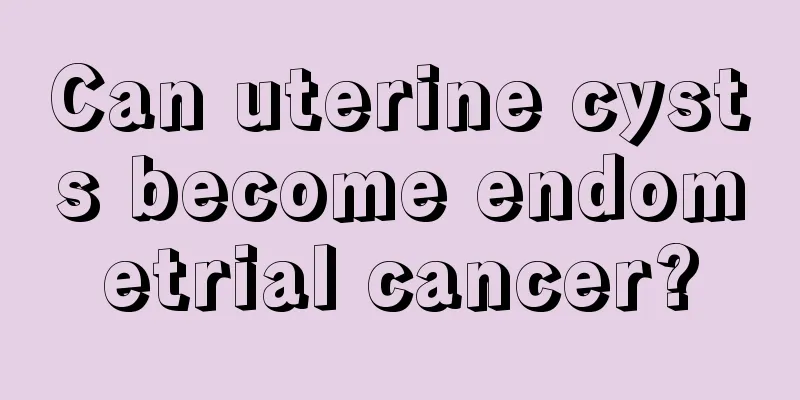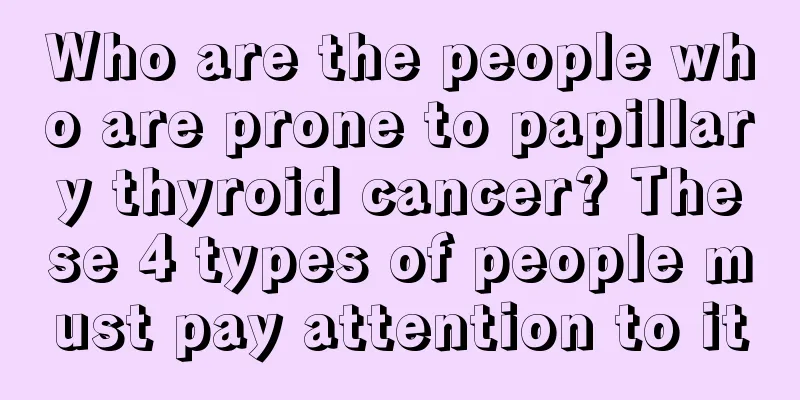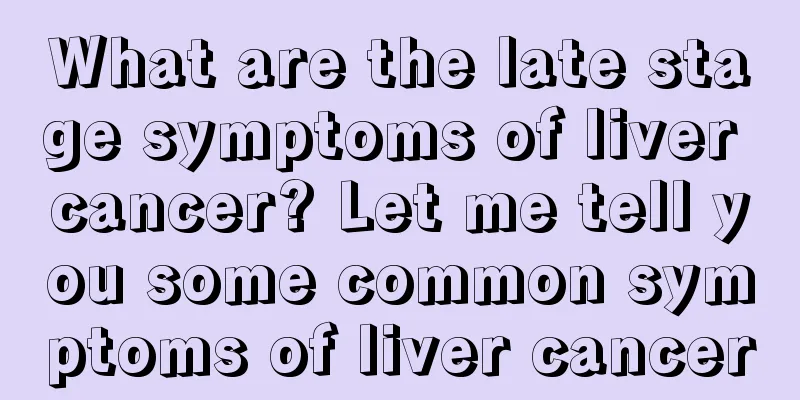Can uterine cysts become endometrial cancer?

|
Uterine cysts are usually not a direct cause of endometrial cancer, but in some cases, if uterine cysts are accompanied by abnormal hormone levels or other risk factors, they may increase the risk of endometrial cancer. It is recommended to have regular checkups, monitor the condition, and take intervention measures under the guidance of a doctor to reduce hidden dangers. 1. Causes and properties of uterine cysts Uterine cysts generally refer to benign cystic structures that appear in or around the uterus. Common causes include excessive secretion of cervical glands, chronic inflammatory stimulation, or imbalanced hormone levels in the body. Most of them are benign in nature and have limited impact on health. However, if the cyst continues to grow, is combined with other symptoms, or has a tendency to become malignant, it should be taken seriously. In some cases, cysts may indirectly change the hormonal environment and affect the health of endometrial tissue. 2. Association between uterine cysts and endometrial cancer Endometrial cancer is a malignant tumor that is closely related to estrogen levels. When uterine cysts are accompanied by polycystic ovary syndrome (PCOS), obesity, diabetes, or long-term use of hormone-containing drugs, the estrogen level in the body may be unbalanced, leading to abnormal proliferation of the endometrium, which in turn increases the possibility of cancer. In some cases, indirect associations need to be vigilant, but there is no necessary causal relationship between the two. 3. How to prevent and manage uterine cysts and their potential risks Drug treatment: If the cyst is accompanied by hormonal disorders, progestin-containing drugs such as Diane-35 can be used under the guidance of a doctor to regulate hormone levels and prevent abnormal proliferation of the endometrium. Surgical intervention: For cysts with larger diameters or cysts suspected of malignant transformation, laparoscopic surgery or hysterectomy can be chosen. The surgical plan should be determined based on individual circumstances. Diet and exercise: Control your weight, reduce high-sugar and high-fat diets, eat more foods rich in dietary fiber and antioxidants such as green leafy vegetables, oats, nuts, etc., and insist on moderate exercise to reduce the risk of hormone fluctuations and endometrial lesions. There is no direct causal relationship between uterine cysts and endometrial cancer, but certain high-risk factors may increase the risk of cancer through hormone imbalance. Regular gynecological examinations, a healthy lifestyle, and medical intervention when necessary are important means of prevention and management. If you have any discomfort or suspected lesions, please seek medical attention in a timely manner and have your condition scientifically evaluated to protect your health. |
<<: What are the symptoms of esophageal cancer
>>: Can waist CT detect bone cancer?
Recommend
The back of my head is itchy and there are large pieces of dandruff
Many people may have had this experience: when sc...
How long is the incubation period of syphilis and can it be detected?
Syphilis is one of the major sexually transmitted...
What are the symptoms of ichthyosis
The occurrence of ichthyosis can manifest itself ...
What are the symptoms of ginkgo poisoning?
Ginkgo nuts are rich in protein, can cure lung he...
Treatment and care points for bedsores
Bedsores are also called pressure sores in daily ...
What is the correct way to practice humming
Nowadays, many people aspire to become a star, bu...
Treatment of central retinal vein occlusion
We all know that the myopia situation among teena...
There is a cracking sound in the thigh bones when walking
Finding your bones making noises when walking can...
Always wanting to eat is a disease and needs to be treated!
When we are free, we will think about all kinds o...
How much does brain cancer treatment usually cost
How much does it usually cost to treat brain canc...
What to drink to protect your throat
In our daily life, we are more likely to have sor...
Nasopharyngeal carcinoma can be treated with Chinese medicine diet therapy during radiotherapy and chemotherapy
Combining traditional Chinese medicine diet thera...
Abdominal muscle training method that does not hurt the waist, teach you how to train a perfect body
Many people have stiff waist joints, so they are ...
How to deal with oil burns
Accidents are everywhere in life. What we can do ...
The purpose of scraping
Nowadays, more and more people sit in front of co...









